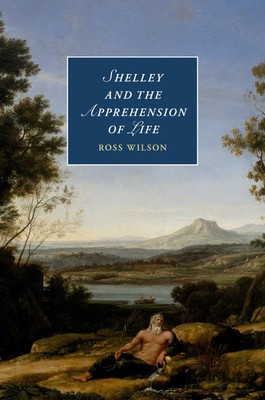
- We will send in 10–14 business days.
- Author: Ross Wilson
- Publisher: Cambridge University Press
- ISBN-10: 1107628628
- ISBN-13: 9781107628625
- Format: 15.2 x 22.9 x 1.3 cm, minkšti viršeliai
- Language: English
- SAVE -10% with code: EXTRA
Reviews
Description
Percy Bysshe Shelley, in the essay 'On Life' (1819), stated 'We live on, and in living we lose the apprehension of life'. Ross Wilson uses this statement as a starting point to explore Shelley's fundamental beliefs about life and the significance of poetry. Drawing on a wide range of Shelley's own writing and on philosophical thinking from Plato to the present, this book offers a timely intervention in the debate about what Romantic poets understood by 'life'. For Shelley, it demonstrates poetry is emphatically 'living melody', which stands in resolute contrast to a world in which life does not live. Wilson argues that Shelley's concern with the opposition between 'living' and 'the apprehension of life' is fundamental to his work and lies at the heart of Romantic-era thought.
EXTRA 10 % discount with code: EXTRA
The promotion ends in 23d.14:35:42
The discount code is valid when purchasing from 10 €. Discounts do not stack.
- Author: Ross Wilson
- Publisher: Cambridge University Press
- ISBN-10: 1107628628
- ISBN-13: 9781107628625
- Format: 15.2 x 22.9 x 1.3 cm, minkšti viršeliai
- Language: English English
Percy Bysshe Shelley, in the essay 'On Life' (1819), stated 'We live on, and in living we lose the apprehension of life'. Ross Wilson uses this statement as a starting point to explore Shelley's fundamental beliefs about life and the significance of poetry. Drawing on a wide range of Shelley's own writing and on philosophical thinking from Plato to the present, this book offers a timely intervention in the debate about what Romantic poets understood by 'life'. For Shelley, it demonstrates poetry is emphatically 'living melody', which stands in resolute contrast to a world in which life does not live. Wilson argues that Shelley's concern with the opposition between 'living' and 'the apprehension of life' is fundamental to his work and lies at the heart of Romantic-era thought.


Reviews